How Reverse Image Search Changes Your Digital Life
There is nothing like the perfect image to spruce up a social media post or blog. Everyone loves eye candy and they say a picture is worth a thousand words. Pictures are attractive, are often self-explanatory, and with some creativity, can be very entertaining. But, while images are a powerful way to tell a story both in fiction and non-fiction, finding the right image to convey your message isn't easy.
Thankfully, there are powerful tools to solve this problem. Reverse image search refers to the use of powerful tools and techniques to find images that you can use quickly and legally.
How does it work?
If you post often on social media or are part of a marketing team, then you are likely to work a lot with images and graphics. Finding the perfect picture, its source, and determining usage rights can only be accomplished with a reverse image search. Failure to do so can lead to copyright infringement and a potential dent in your pocket in the form of legal bills.
A reverse image search or reverse picture search is the use of online software tools to determine the source of a picture. These tools scour the world wide web and return a set of results with detailed information about the picture.
Part 1. Benefits of Reverse Image Search
A reverse image search comes with a host of benefits as noted below.
Find the Source of the Image
Content creators are always on the hunt for graphics to effectively tell their story. The quest usually begins at a search engine, visiting sites that appear to have the needed pictures. Naturally, as a good online citizen, you would seek permission from the owner to use the collaterals and provide attribution by linking the page.
Unfortunately, a lot of websites use graphics illegally so there is a pretty good chance you will attribute someone else and not the real owner. This can be avoided by running a reverse image search to identify the origin of the pictures and giving the real owner the credit.
Earn Natural Backlinks
Do you suspect that someone has been using your creative collaterals without your permission? If you do, a reverse image search will quickly help you nail the culprit.
If you find someone using your pictures without permission, you can demand that they take them down. Alternatively, you can write them an official warning and give them the alternative to link back to you instead of taking the photos down.
This is one way to get free natural backlinks that help with your SEO. In the long-run, your website will climb in SERPs.
Find Fake Social Media Profiles and Posts
There is no question that social media has changed the way businesses run. Businesses that use social media a lot will invariably come across fake profiles and posts. Left unaddressed, this can hurt the business. Running a reverse image search can help you quickly weed out fake accounts.
Even when hiring people remotely, running a reverse picture search can help you determine if you are interacting with the right person.
And, this extends to personal relationships as well. People will often use a fake photograph to entice others to interact with them.
Learn Quickly About Places and Things
People in various professions have found reverse image searches to be useful at helping them quickly identify places and things.
Say, for example, you are an avid traveler and you come across a photograph of a beautiful place but the location is not provided. A reverse photo search can quickly provide you with the name of the location and all the sites with relevant information.
Also, imagine you come across a picture of a dish that looks divine and you want the recipe. Simply run a reverse image search on the photo and you will have results that include the recipe.
Explore Products Labelled Poorly
Have you ever shopped online and come across products that don't have detailed or useful descriptions? This is quite common on several popular e-commerce websites. The last thing you want to do is buy something online only to discover it is unfit for purpose once it is delivered.
A reverse image search on the product photo can quickly take you to the original manufacturer's website which will likely have more useful information.
Unearth the Real Names of Celebrities
We are all captivated by TV and Movie stars. A reverse photo search can help you unearth much more information about the celebrity. For example, some celebrities use nicknames or adopted names. But a reverse picture search can reveal even the most concealed information from the archives.
To reap all these benefits, you must identify the best reverse image tool.
Part 2. Free Reverse Image Search Tools
Below are 8 free tools we have tried out and wouldn't hesitate to recommend.
Google Image Search
Being the most popular search engine, it is not surprising that Google Image Search is the most popular resource for photo searches. You can get an exact match, check copyright, and the image size. Below are instructions using different devices.
Reverse Image Search on a Computer
To search, visit Google Image Search in your browser and follow these steps:
1. Click the camera icon
2. Click on the Upload the image tab.
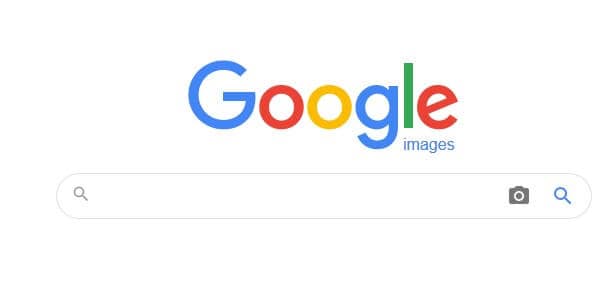
3. Click Browse and upload the picture from a location on your computer. Alternatively, paste the image link/URL.
4. Click Search.
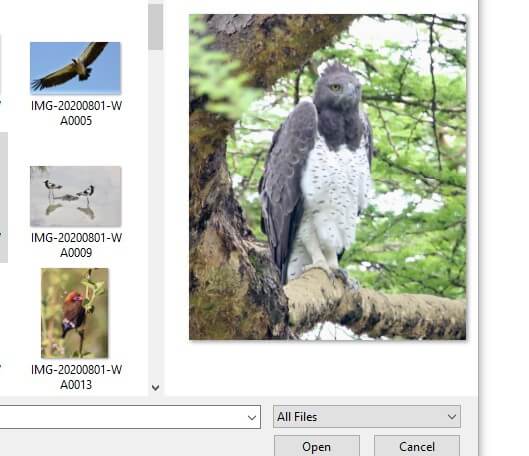
5. Wait for it to be uploaded in a few seconds and then check out the results.
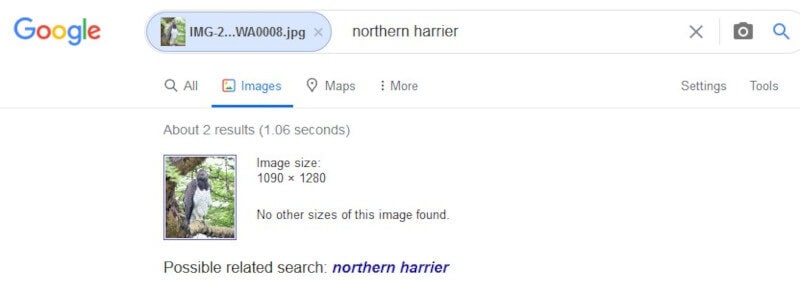
Reverse Image Search on Android, iPhone, and iPad
1. Open the Google app on your phone and tap Snapshot at the bottom.
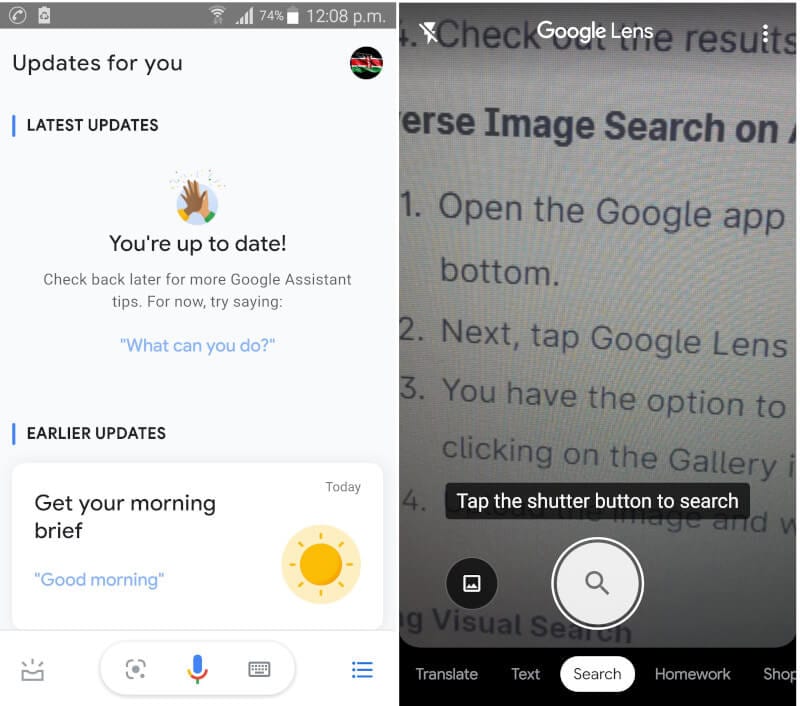
2. Next, tap Google Lens at the bottom.
3. You have the option to take a photo or upload a photo by clicking on the Gallery icon.
4. Upload the image and wait for the results.
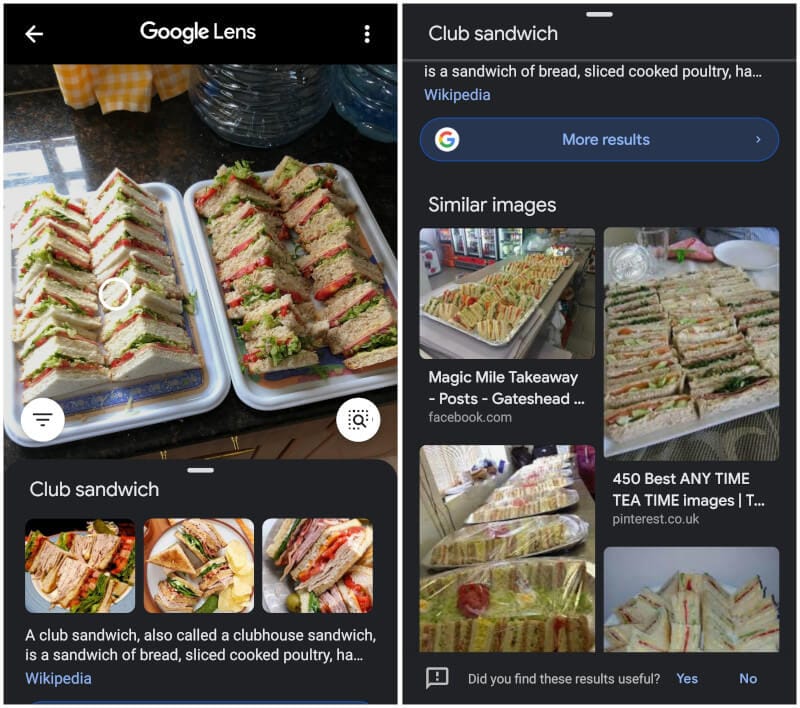
It is important to note that uploaded pictures are saved by Google for seven days before being deleted from their servers. They also don't appear in your history.
Bing Visual Search
The Bing Visual search engine was introduced in 2014. It is simple to use and is compatible with any browser.
To perform a search, follow the steps below:
1. Visit the Bing Visual Search page using your device.

2. You have the option to drag a file, take a photo, paste a URL, or browse your computer and upload it.
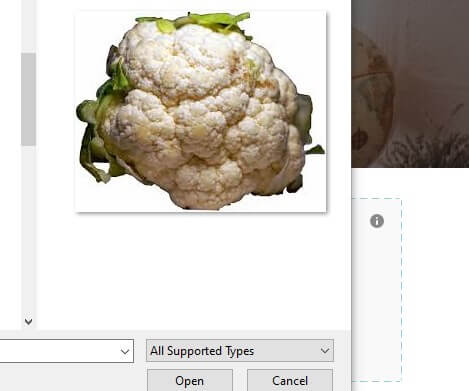
3. It takes a few seconds and you have a list of results.
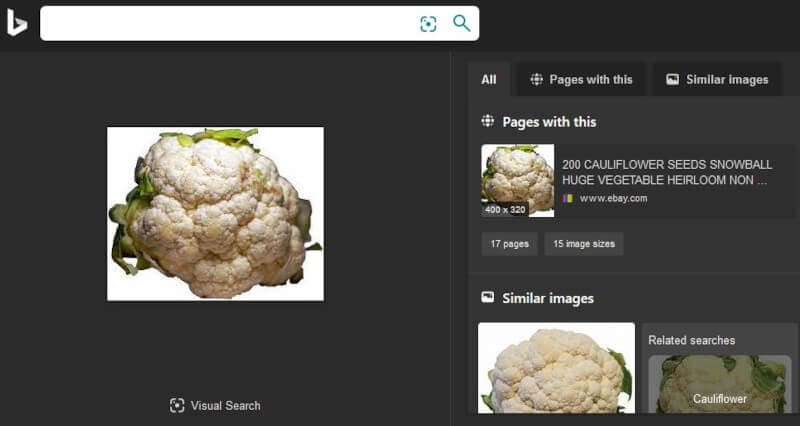
Yahoo Images
Yahoo Images is great if you want to find relevant images to use on a blog post of social media posts. It works by finding pictures based on the entered key phrase.
You can also find the source by seeking it using the URL.
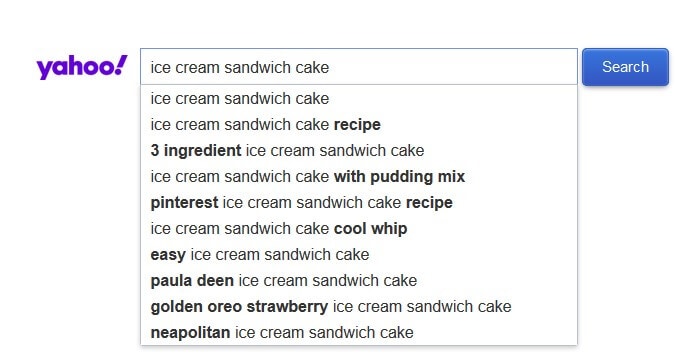
Visit the site and enter the desired phrase or the picture link and press Enter.
Pinterest Visual Search Tool
Launched in 2015, the Pinterest Visual Search Tool uses powerful algorithms to not only identify an image but also identify objects within the picture. The tool is available on the web and phone apps.
To use the tool, follow these steps.
1. Visit the Pinterest site.
2. Log in and upload it to your account. Alternatively, add a link to the picture.

3. Click Add to Pin, select a relevant board, and click Save.
4. Go to the picture and click the Pin icon to perform a visual search.
5. You can readjust the size of the pin area to zero in on a specific item in the picture and get a result.
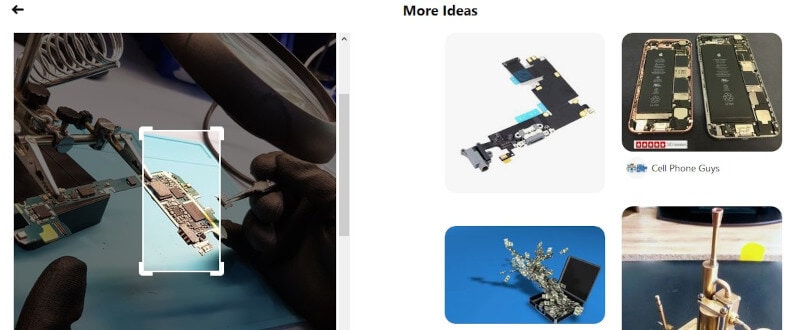
Pinterest will provide you with similar items and pins where it appears. Results can also be filtered by topic.
Part 3. Image Usage Rights
Understanding usage rights will keep you safe from legal problems. As a general legal principle, all creative content belongs to the creator of the content. The creator of the content can sell or lease the rights to the content to another party and that party becomes the rights holder. The creator of content can also license other people to use the content.
A creative commons (CC) license is the most common type of license for online content. It allows content owners to license out content that would otherwise be subject to copyright. This license allows users to use it, share it, or build upon it. Below is a table showing the seven regularly used licenses.

So, it is important to know the licensing related to each collateral you find online. This is because while many of the reverse image search tools described above will show you the source of the picture, the pictures may not be copyright free even if another site is using them.
How to Use Images Legally
The quickest and easiest way to use a picture legally is to visit the source and look for information on how you can use it under a specific CC license. If such information is unavailable, reach out to the site owner and seek their permission to it on your content. You can offer to provide attribution and link back to their site.
When hunting for pictures to use in Google, click the Images tab, then Tools, and then filter the search results by Usage rights.
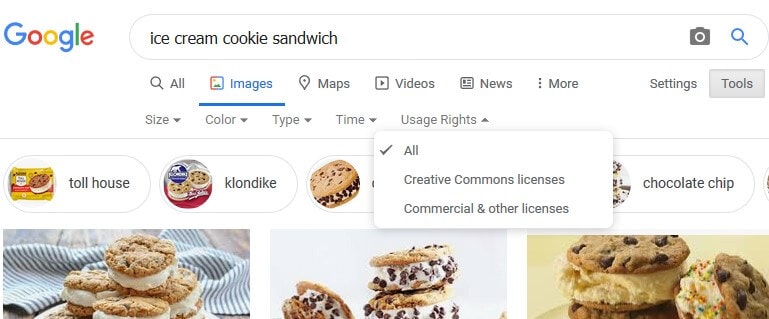
This shows you the usage rights associated with each collateral and helps you use them legally.
Conclusion
In summary, many content creators are unaware that of how powerful a reverse image search can be in helping find the perfect image to tell a great story. They end up wasting time seeking specific pictures. Many also end up using copyrighted content without providing proper attribution. If in doubt about whether the content is licensed for use, don't use it.
FAQ
-
1. What is a reverse image search?
A reverse image search is an online check to identify the source of an image by making use of specialized tools.
-
2. How do I do a reverse image search on my phone?
To conduct a reverse photo search on your phone, tap the Google app then tap Snapshot. After that tap Google Lens and then the Gallery icon to open the Gallery. Select the image and upload it. After a few seconds, you will have a list of results.
-
3. How do I find the source of an image?
There are several tools to find the source of an image. These tools are known as reverse image search tools and include Google Image Search, Bing Visual Search, and many more.
-
4. How do I find the source of an image on Facebook?
Copy the URL of the image on Facebook and then paste it Google Image search. You can also use Bing Visual Search in addition to several other reverse image search tools.
-
5. Can you use pictures from the Internet without permission?
No. Unless the pictures are explicitly labeled as "Public Domain" you must abide by the license requirements.
Fix Media File Issues
- Recover & Repair Photos
- Recover Videos
- Repair Videos
- Recover & Repair Audio
- Recover & Repair Cameras




















Eleanor Reed
staff Editor